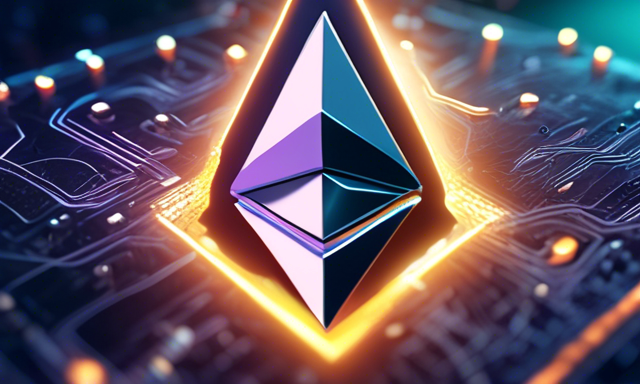Understanding Ethereum: The Revolutionary Blockchain Technology
Have you ever wondered how blockchain technology is changing the world? If you are interested in cryptocurrencies and innovation, you must have come across Ethereum. In this article, we will delve into the revolutionary blockchain technology of Ethereum, explaining its features and the immense potential it holds. So, fasten your seatbelts and get ready for an exhilarating ride into the world of Ethereum!
What is Ethereum?
Ethereum is an open-source blockchain platform that enables developers to build decentralized applications (Dapps) and smart contracts. It was proposed in late 2013 by Vitalik Buterin, a young prodigy in the cryptocurrency space. Unlike Bitcoin, Ethereum is not just a digital currency; it is a decentralized computing platform that allows developers to create and run applications on its blockchain.
How does Ethereum work?
Ethereum’s technology is based on blockchain principles. It utilizes a network of computers (nodes) that work together to verify and record transactions. These transactions are grouped into blocks, and each block is linked to the previous one, creating a chain of blocks – the blockchain. What sets Ethereum apart is its ability to execute smart contracts, which are self-executing contracts with the terms of the agreement directly written into the code. Once the conditions programmed in the contract are met, the contract is automatically executed, eliminating the need for intermediaries.
What are smart contracts?
Smart contracts are the backbone of Ethereum. They are computer programs that automatically execute contract terms once predefined conditions are met. Imagine being able to enter into an agreement without relying on a third party. For example, you can create a smart contract to purchase a house. The contract holds the funds until the seller transfers the ownership to you. Once the ownership is transferred, the contract automatically releases the funds to the seller. This eliminates the need for escrow services and minimizes the risk of fraud.
What are the advantages of Ethereum?
Ethereum offers several key advantages over traditional systems. Firstly, it is decentralized, meaning there is no central authority or governing body controlling the network. This makes it resistant to censorship and ensures the integrity of transactions. Secondly, by using smart contracts, Ethereum eliminates the need for intermediaries, reducing costs and increasing efficiency. Additionally, Ethereum’s open-source nature allows anyone to build on top of the platform, fueling innovation and promoting collaboration.
What is Ether?
Ether (ETH) is the native cryptocurrency of the Ethereum network. It serves as a means of value exchange within the platform, enabling users to pay for transaction fees and interact with smart contracts. Ether plays a crucial role in incentivizing miners to secure the network by participating in the consensus mechanism called Proof of Stake (PoS). Ethereum’s transition from Proof of Work (PoW) to PoS aims to enhance scalability, reduce energy consumption, and make the network more secure.
What are the potential applications of Ethereum?
Ethereum’s potential applications are vast and diverse. From decentralized finance (DeFi) to supply chain management, from gaming to voting systems, Ethereum offers a platform for groundbreaking innovation. It has democratized fundraising through Initial Coin Offerings (ICOs), allowing anyone to invest in promising projects. With Ethereum, developers can build decentralized applications that offer transparency, security, and efficiency, revolutionizing various sectors of the economy.
Conclusion
Embracing Ethereum means embracing the future. This revolutionary blockchain technology has the power to transform numerous industries by providing decentralized solutions that are secure, efficient, and transparent. By understanding Ethereum’s potential and its core features like smart contracts and decentralized applications, you can stay ahead of the curve and be part of the extraordinary blockchain revolution.
Frequently Asked Questions
1. Is Ethereum the same as Bitcoin?
No, Ethereum and Bitcoin are not the same. While they both utilize blockchain technology, Ethereum is a platform for building decentralized applications, while Bitcoin is purely a digital currency.
2. Can I mine Ethereum?
Yes, you can mine Ethereum using your computer’s resources, but due to its increasing popularity, mining has become more competitive and requires specialized hardware to be profitable.
3. How can I start using Ethereum?
To start using Ethereum, you need to set up a digital wallet to store your Ether. You can then buy Ether from cryptocurrency exchanges or earn it by providing goods or services.
4. How secure is Ethereum?
Ethereum is considered to be highly secure due to its decentralized nature and robust cryptographic algorithms. However, like any technology, it is not completely immune to vulnerabilities or hacking attempts.
5. What is the future of Ethereum?
The future of Ethereum looks promising. With its continuous development and upgrades, including the transition to Proof of Stake consensus, Ethereum aims to address scalability issues and remain a leading platform for decentralized applications and innovation.





 By
By
 By
By

 By
By
 By
By